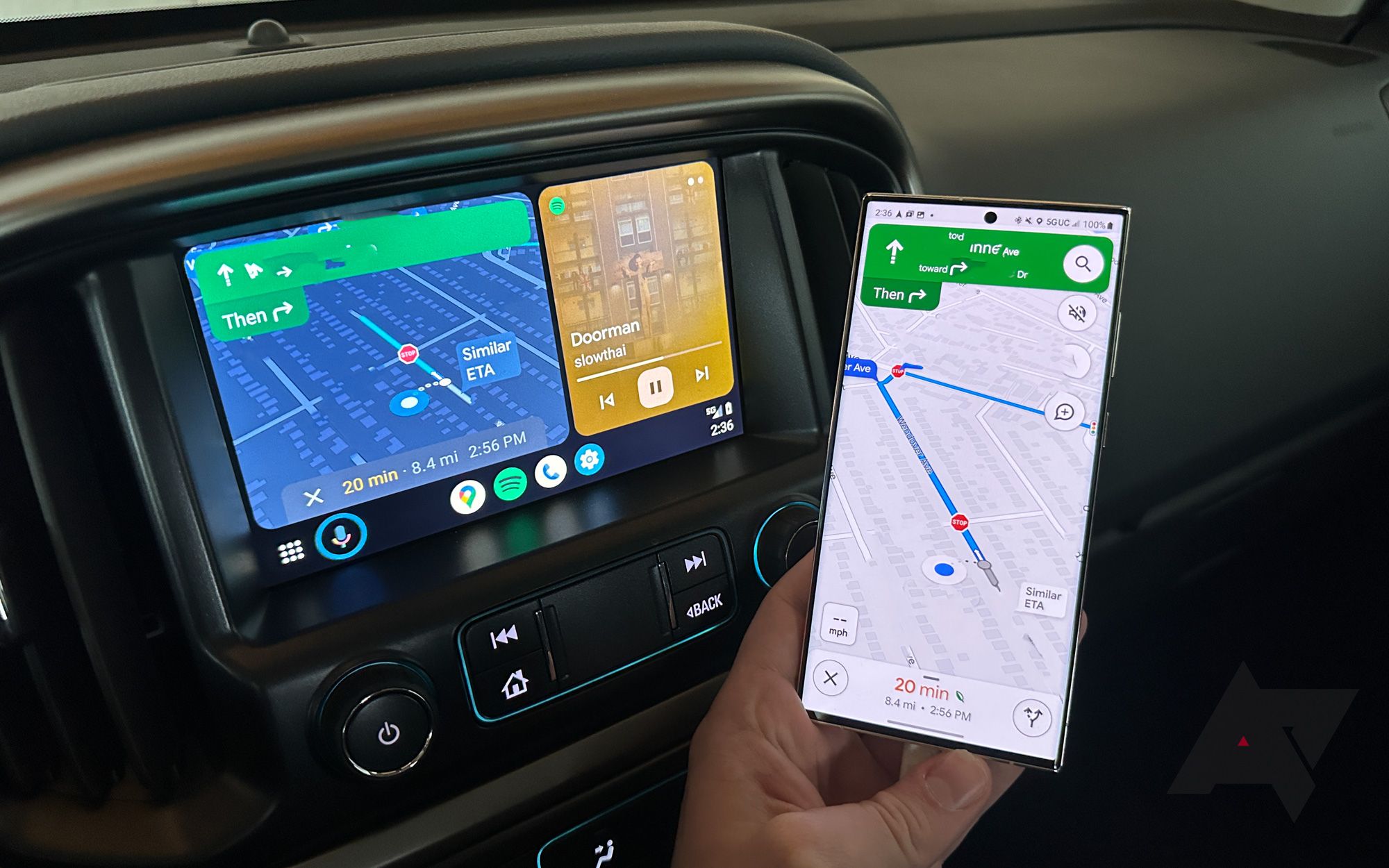Summary
- GM's decision to not support Android Auto and Apple CarPlay in its future EVs has sparked controversy among car buyers and tech enthusiasts.
- GM argues that the removal of Android Auto is necessary to curb distractions and make cars safer, citing issues with frequent disconnections, slow response times, and dropped connections with the system.
- The switch to Android Automotive may not be a suitable replacement for Apple CarPlay in a predominantly iPhone-dominated market like the US, as several apps, including Apple Music and Apple Maps, are not available on Android Automotive. GM's push for subscription-based monetization through its proprietary software Ultifi may be the bigger play here.
Android Auto is a convenient feature which brings your phone’s critical functions like navigation, calling, messaging, and media control right to your vehicle’s infotainment system. Your phone connects to the car over a wired or wireless connection, while substituting a handful of features — like your device's keyboard — for driving-friendly replacements, such as Assistant. Despite the obvious benefits of such systems, earlier this year, GM announced its future EVs won’t support Android Auto and Apple CarPlay, instead preferring Android Automotive running alongside proprietary software called Ultifi.
Smartphones are quite distracting, and even taking a moment to look at them proves fatal for thousands of road users every year, in the US alone. Android Auto and Apple CarPlay include requisite protections to curtail distractions, and Google and Apple license the software to carmakers. However, earlier this year, GM announced its upcoming electric cars won’t support Android Auto or CarPlay. The decision didn’t go down well with car buyers and tech enthusiasts alike, even though GM detailed its plans to go the Android Automotive route. That's the equivalent of the car’s infotainment system itself running Android, instead of just mirroring your phone’s content through an Android Auto link.

Future GM EVs won’t support Android Auto
You’ll be able to access Google Maps through a built-in infotainment system insteadAt the time, GM also spoke, albeit in very vague terms, about how the Ultifi software announced late in 2021 would improve connected vehicle tech better across GM vehicles. In GM’s own terms, the tech pairs cloud-based services with room for subscription-based platforms. Therein lies the crux of the company’s argument — an aggressive push for subscription-based monetization of the in-car infotainment experience.
As covered by MotorTrend, GM’s head of product for infotainment, Tim Babbitt, recently doubled down on the brand’s decision at a press event for the Chevy Blazer EV. At that event, Babbit stated the removal of Android Auto and CarPlay as a necessary step to curb distractions and make cars safer (via 9to5Google), arguing that Android Auto is prone to plenty of issues that sidetrack drivers. Cited problems included frequent disconnection, stuttering, slow response time, and dropped connections, all of which force the driver to check their phone and create room for error.
There’s no denying Android Auto has its fair share of issues, and that a switch to Android Automotive brings several benefits. For instance, the latter would unlock even more Assistant-powered commands, and Google is constantly working with app developers to expand the catalog of apps which run natively on Android Automotive. However, it would be gross oversight on GM’s part to presume Android Automotive would be a suitable drop-in replacement for Apple CarPlay in a primarily iPhone-dominated market like the US. Several apps, including Apple Music and Apple Maps, aren’t available on Android Automotive, and considering Apple's focus on building new CarPlay experiences, it seems unlikely that'll change anytime soon.
In such light, a switch to Android Automotive may seem foolhardy for GM brands, unless the Ultifi tech added along the sidelines is the bigger play here. One look at GM's previous statements makes it clear that there's a lot more than safety on the table.
In an interaction with Reuters from 2021, the carmaker made it clear subscriptions are an obvious profit route. CEO Mary Barra has previously stated GM intends to earn $20 to $25 billion in annual subscription revenue enabled by Ultifi by 2030 — a staggering number considering the 2024 Chevy Blazer EV will be the first GM car lacking Android Auto and CarPlay. In any case, it will start the transition for the brand, no matter how absurd the justification may be.
After publication — and, crucially, outcry from fans and publications alike — GM reached out to MotorTrend with the following statement concerning Babbitt's claims surrounding safety.
“We wanted to reach out to clarify that comments about GM's position on phone projection were misrepresented and to reinforce our valued partnerships with Apple and Google and each company's commitment to driver safety. GM's embedded infotainment strategy is driven by the benefits of having a system that allows for greater integration with the larger GM ecosystem and vehicles."
"auto" - Google News
December 14, 2023 at 04:47AM
https://ift.tt/Tx7s8LF
GM believes removing Android Auto and CarPlay support makes its cars safer - Android Police
"auto" - Google News
https://ift.tt/sW17Txi
https://ift.tt/s54TGzZ
Bagikan Berita Ini














0 Response to "GM believes removing Android Auto and CarPlay support makes its cars safer - Android Police"
Post a Comment